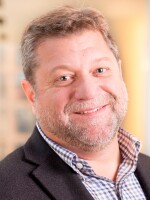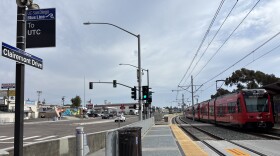For 42 of the past 55 years, the mayor's office on the fifth floor of Chicago's City Hall has been occupied by someone named Daley. But Richard M. Daley -- who has been mayor since 1989 and whose father was mayor from '55 to '76 -- says he will not seek a seventh term, so Chicagoans will have to get used to having a mayor not named Daley.
The stunning announcement is dramatically shifting the political landscape in the nation's third-largest city, and there is talk that a big name in the White House might return home to run for the office.
The Daleys are considered almost like political royalty in Chicago -- much like the Kennedys in Massachusetts. So when someone named Daley announces he's leaving office, many in Chicago say, it creates a political tsunami.
Local television and radio stations broke format Tuesday afternoon to carry the news. They repeatedly played the mayor's four-minute statement -- and sought reactions from politicians, community leaders and people on the street.
Appearing to tear and choke up at times, an emotional Daley, surrounded by his wife, Maggie, and their children, offered little in the way of explanation.
"Simply put, it's time," Daley said. "It's time for me, time for Chicago, to move on."
"I know there will be some reflecting on my time as mayor, and many of you will search to find what's behind my decision," Daley added. "It's simple. I've always believed that every person, especially public officials, must understand when it's time to move on. For me, that time is now."
Daley is credited with a building boom in Chicago, from skyscrapers and condos downtown to mixed-income developments and bungalow rehabs in city neighborhoods. He's praised for beautifying the city from its stunning Lake Michigan shoreline to neighborhood streets and parks. And he's credited with sparking urban renewal and rebirth that many cities have tried to copy.
But some critics say Chicago's growth into a beautiful, global city came with a hefty price. They point to huge cost overruns on projects such as Millennium Park and bloated contracts to Daley's friends and contributors.
Corruption scandals have rocked City Hall throughout his tenure, most recently with his former Streets and Sanitation commissioner being convicted this summer for doling out city jobs, promotions and plum assignments for political work.
While many in Chicago were shocked by Daley's announcement, it wasn't completely unexpected. He has said on occasion that he did not want to be mayor for life -- though many in Chicago thought he would be.
Some close to him have said Daley thought the stress of the job contributed to the heart attack that killed his father, Richard J. Daley, and that the younger didn't want that to happen to him.
And Daley's wife has been battling cancer for several years, and her condition has worsened recently.
"The truth is that I've been thinking about this for the last several months," Daley said. "In the last several weeks, I've been increasingly comfortable with my decision. It just feels right."
Had Daley decided to run, he'd be trying to dart around some big Chicago potholes on his road to re-election. The city faces a record $655 million deficit for the next fiscal year, beginning Dec. 1. Violent crime and street gangs continue to terrorize some Chicago neighborhoods. Three Chicago police officers have been shot to death in recent years, and the problem of youth violence is particularly troubling.
Jobs in Chicago are hard to find. Though Daley is credited with taking Chicago's economy out of the Rust Belt and into a global era, the city is still bleeding jobs, and it appears that the economy will continue to struggle in the future.
Daley also has taken considerable heat in the past year or two over troubled deals to privatize some city assets for big upfront payments, most notably a long-term lease deal he rammed through City Council with little public notice or debate.
Parking meter rates and the ticketing of residents' cars are on the rise, outraging Chicagoans.
A lack of affordable housing and his autocratic style also have contributed to Daley's approval rating among city voters dropping like a Chicago thermometer in January. But if any of that influenced Daley's decision to walk away from a job he professes to love, he didn't say so in his brief statement.
"In the end, this is a personal decision -- no more, no less," Daley said.
Cook County Clerk David Orr, a former alderman and longtime independent Chicago Democrat who often disagreed with Daley, called it "a political bombshell."
"Obviously this town is so used to Daleys as mayor, and it really kind of puts everything up in the air," Orr said. He said he's "not really thinking about" running for a job he once held for about a week on an interim basis after the death of Harold Washington in 1987. But like many Chicago politicians, he's not ruling it out.
Among the biggest names likely to consider the race is White House Chief of Staff Rahm Emanuel, who served three terms in Congress for Chicago's north side and worked on Daley's first successful campaign for mayor in 1989 as a policy adviser and fundraiser.
In April, Charlie Rose on PBS asked Emanuel what other job in government he would like to have.
Emanuel answered: "First of all, let me say it this way, I hope Mayor Daley seeks re-election. I will work and support him if he seeks re-election. But if Mayor Daley doesn't, one day I would like to run for mayor of the city of Chicago."
In a statement e-mailed to reporters, Emanuel said Daley's announcement surprised him, but Emanuel refused to say whether he might run for mayor in the February 22, 2011, election.
Besides Emanuel, many others are considering a run for mayor. Chicago politicians from congressmen to aldermen, including current and former city, county and state officials, have been quietly biding their time for years. They've been afraid and unwilling to challenge the powerful Daley. Now the day that many thought might never come is finally here.
Copyright 2022 NPR. To see more, visit https://www.npr.org. 9(MDAzMjM2NDYzMDEyMzc1Njk5NjAxNzY3OQ001))






